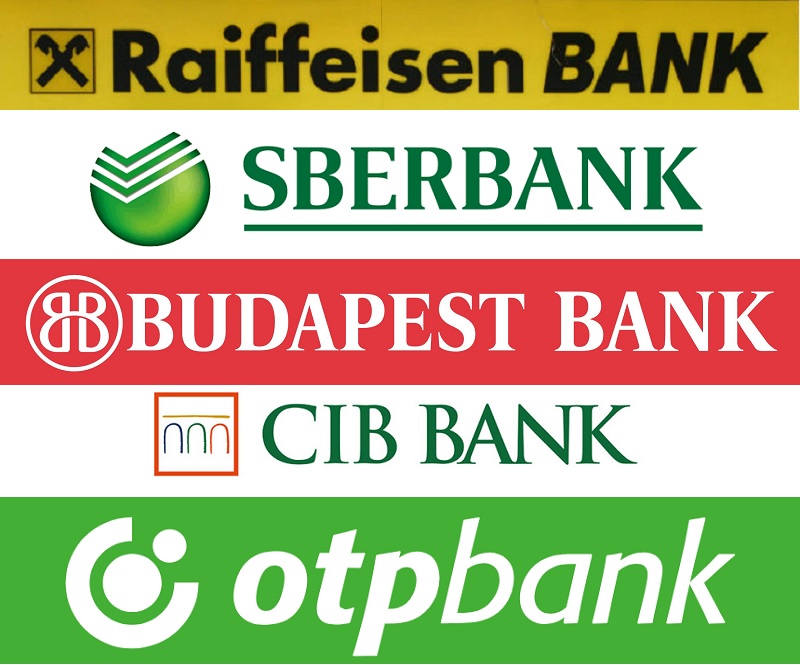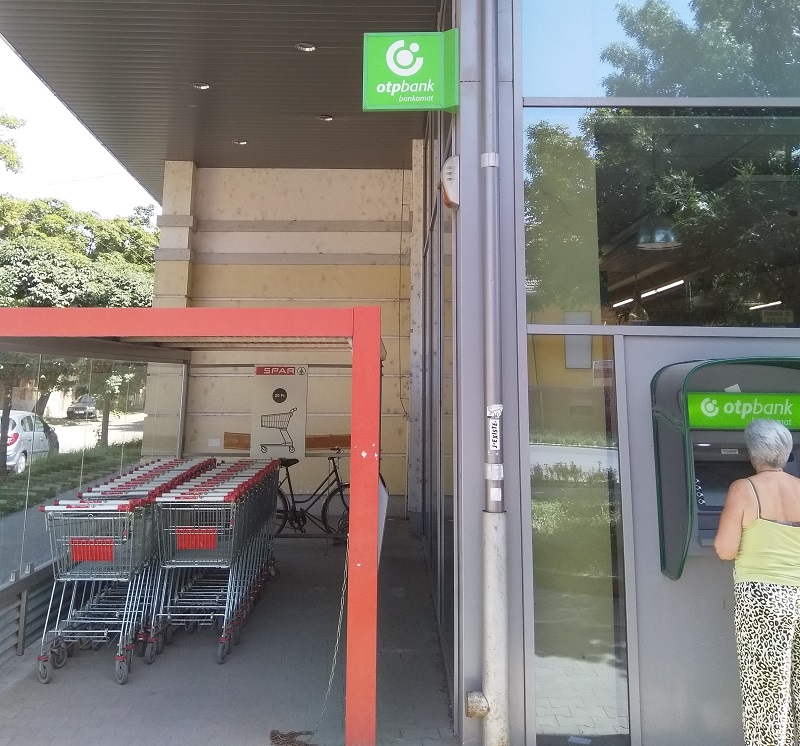It’s surprisingly easy to avoid paying ATM fees in Hungary. I lived in Hungary for a month and never had to pay any ATM fees at all. That’s not to say none of the banks in the country levy foreign currency charges at their machines. There are lots of banks in Hungary I never tried to use.
I was very surprised to discover Raiffeisen Bank doesn’t charge any ATM fees in Hungary. Raiffeisen Bank is a Romanian bank that’s active in many European countries. I’ve tried using its ATMs in a number of them and have always had to cancel the transaction because Raiffeisen Bank wanted to charge me a fee. To be honest, due to my past experiences, I was going to walk past the bank without trying its machine. I only offered it my card out of curiosity and was flabbergasted when it allowed me to withdraw money for free.
Here’s a full list of the banks I tried. All of them let me withdraw cash without paying any ATM fees.
5 Hungarian Banks That Don’t Charge ATM Fees
- Raiffeisen Bank (avoid this bank in most other European countries)
- Sberbank
- BUDAPEST BANK
- CIB Bank
- otpbank
All of the banks in Hungary may be as tourist-friendly as the ones on my list, but I doubt it. There were plenty of other ATMs I didn’t try.
The problem is, not all ATMs warn you before they hit you with a fee. One of the ATMs I used in Albania hit me with a transaction fee right out of the blue. There was no warning at all. I only discovered the fee when I checked my bank statement. I’d withdrawn 10,000 LEK, but my statement said 10,450 LEK. That was an extra €3.65. If it can happen with an Albanian ATM, I figure it could happen elsewhere.
If you are visiting Hungary and want a sure-fire way to avoid paying any ATM fees, I recommend you try the banks on my list first of all.

Dynamic Currency Conversion: Don’t Do It! The Banks Will Charge You More
Here’s another tip: Always decline the offer of making the transaction in your own currency. ATMs often give you this option. It’s called Dynamic Currency Conversion and it always works out more expensive than completing the transaction in the local currency.
Dynamic Currency Conversion is just a sneaky way for greedy banks to rob you of a little extra money. You can sometimes end up paying up to 18% more. If you are not familiar with the system, you can learn more about it here: https://en.wikipedia.org/wiki/Dynamic_currency_conversion

Tried otp bank i apparently did not have approval for any amount i typied in
Yet same bank had a euro atm which was prepared to let me have as many euros as i wanted ,strange dont you think same bank ,two different practises.
Ps euros are just as bad as sterling to work with in hungary ,in fact sterling is not appreciated at all
Hi Sidhu,
I agree. That is strange. I’m surprised there was even an option to take cash in euros. It’s not the local currency. If you were in a big city or near an airport, the option may have been available to make it easier for people about to travel to a country that uses euros.
I’m also not surprised you had trouble using euros and pounds sterling though. The shops etc. in most countries prefer you to use local currency. However, I know from experience, Albania is an exception. They love euros there. When I was there, I was often asked if I wanted to pay in Lek or euros. Someone told me the Albanians actually prefer the euros because it’s a more stable currency but I have no idea if this is true.